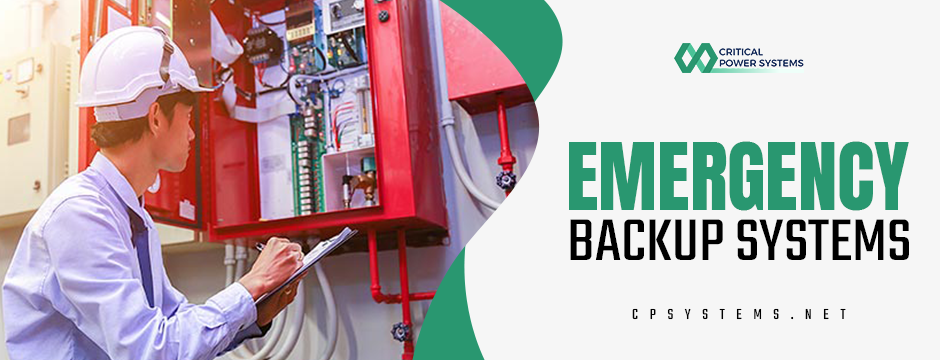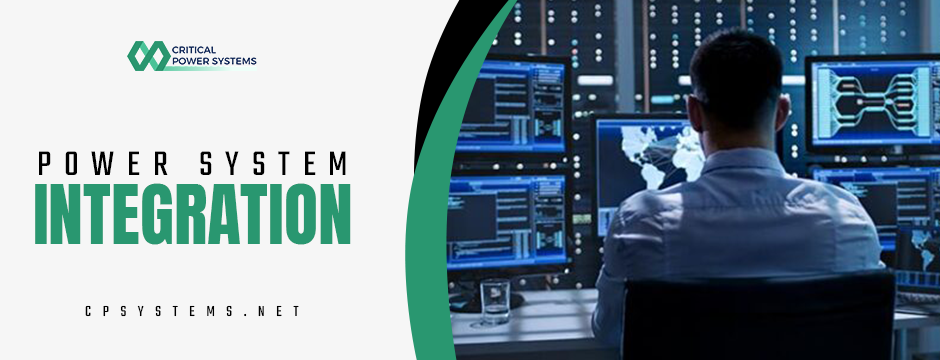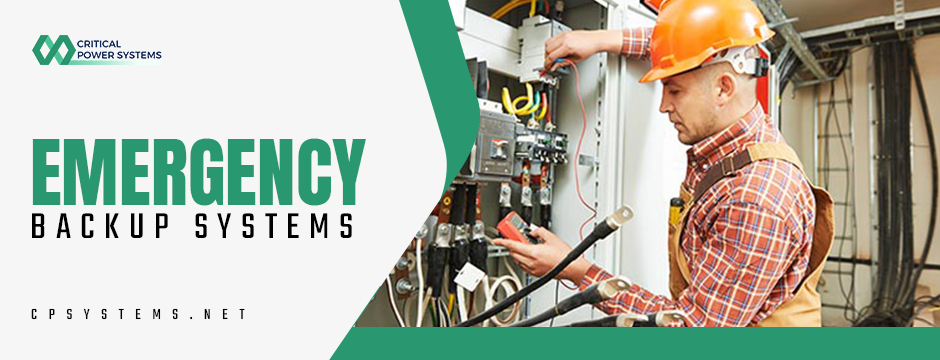Power outages don’t knock—they barge in, often unannounced. Whether it’s an unexpected storm, grid failure, or planned blackout, the question remains the same: How do you keep your home or business running when the lights go out?
At Critical Power Systems, we understand how crucial uninterrupted power is—not just for convenience, but for safety, productivity, and peace of mind. And when it comes to emergency backup systems, the most common showdown we see is: solar vs. gas generators.
Which one is right for you? Let’s break it down.

Solar Backup Systems: Clean, Quiet, and Sustainable
How Solar Backup Systems Work
Solar generators use photovoltaic (PV) panels to capture sunlight and convert it into electricity. The energy is stored in batteries and delivered when needed, either automatically or through a manual switch.
Advantages of Solar Backup Power
- Zero Fuel Cost: After the initial setup, your energy comes from the sun—free and abundant.
- Low Maintenance: No moving parts means fewer chances of mechanical failure.
- Silent Operation: No noise pollution—perfect for residential and urban settings.
- Environmentally Friendly: No emissions or fumes, making it ideal for eco-conscious users.
- Incentives Available: Many states offer tax rebates and credits for solar installations.
Potential Limitations
- Higher Upfront Cost: Solar setups can be more expensive initially than gas.
- Weather Dependent: Performance may dip during cloudy days or long winters.
- Storage Limits: Battery capacity may restrict how much backup power is available.
Gas Generators: Powerful, Reliable, and Readily Available
How Gas Generators Work
Gasoline or propane generators convert fuel into electricity using an internal combustion engine. They are often portable and can deliver immediate power output for hours on end.
Advantages of Gas Backup Generators
- Lower Initial Cost: Entry-level gas generators are generally affordable and widely available.
- Consistent Power Output: Works rain or shine—no sun required.
- Readily Scalable: Available in multiple sizes, from portable units to whole-home systems.
- Fast Startup: Can automatically kick in during outages with proper integration.
Considerations to Keep in Mind
- Ongoing Fuel Costs: Regular refueling adds up quickly, especially during extended outages.
- High Maintenance: Moving parts mean regular oil changes, tune-ups, and inspections.
- Noisy & Polluting: Loud operation and toxic emissions can be a downside, especially in residential areas.
- Storage Risks: Storing fuel safely can be a concern, particularly with gasoline.
Solar vs. Gas: What Matters Most to You?
1. Budget & Long-Term Value
If you’re looking for a low upfront cost, gas generators may seem appealing. But solar often wins in the long game. Over time, savings from fuel, maintenance, and tax incentives can outweigh the initial investment.
2. Power System Integration
Modern solar systems can be fully integrated with your home or business’s electrical infrastructure. At Critical Power Systems, we specialize in power system integration that ensures seamless transition and smart energy management. Gas generators can also be integrated, but often require more manual management and monitoring.
3. Usage Type
- For occasional use, such as camping or seasonal power needs, a portable gas generator might suffice.
- For whole-home or business backup, especially if outages are frequent or prolonged, solar with battery storage provides greater reliability and peace of mind.
4. Environment & Noise Concerns
Solar systems are silent and non-polluting, making them perfect for urban settings, hospitals, schools, and eco-sensitive zones. Gas generators, though powerful, can cause disturbances and violate local noise or emission regulations.
Which Is Right for YOU?
At Critical Power Systems, we don’t believe in one-size-fits-all solutions. Instead, we start with a power needs assessment and site evaluation to match you with the right emergency backup systems.
Whether you’re a homeowner seeking peace of mind or a business preparing for operational continuity, we’ll guide you through:
- Energy load calculation
- Cost vs. ROI analysis
- Installation planning
- Full power system integration
Want the best of both worlds? Hybrid systems that combine solar panels with a gas generator for extra assurance are gaining popularity among our customers.
Comparison Table: Solar vs. Gas Generators
| Feature | Solar Backup System | Gas Generator |
| Initial Cost | High (but incentives available) | Lower upfront |
| Operating Cost | Very Low | Moderate to High (fuel) |
| Maintenance | Minimal | Regular servicing required |
| Noise Level | Silent | Loud |
| Eco-Friendliness | Zero emissions | Produces emissions |
| Lifespan | 20-30 years | 10-15 years |
| Installation Time | 1-3 days | 1-2 days |
| Automatic Start? | Yes (with integration) | Yes (with ATS) |

Final Verdict: Choose Confidence, Choose Critical
There’s no universal winner in the solar vs. gas debate—the best emergency backup systems is the one that fits your lifestyle, location, and budget. That said, if long-term value, eco-responsibility, and quiet operation matter to you, solar is the clear choice.
If raw power and immediate installation at a lower cost are what you need, gas might be the better fit—or even a hybrid approach.
Ready to find out what’s right for you? Contact Critical Power Systems today for a custom quote and consultation.
FAQs
1. Can I run an entire house on a solar backup system?
Yes, with the right battery storage and panel array, solar systems can power most or all essential loads in a home during outages.
2. How long can a gas generator run continuously?
Most can run for 8–24 hours per tank of fuel, depending on size. However, refueling and cool-down periods are necessary for long-term use.
3. Are solar generators powerful enough for businesses?
Absolutely. Commercial solar backup systems can be designed to match any energy demand with proper power system integration.
4. What happens during extended cloudy days with solar?
Battery storage is crucial. In some cases, a hybrid system with a gas backup ensures no downtime during extended low-sunlight periods.
5. How often should I service my gas generator?
Typically every 6 months or after 100 hours of use. This includes oil changes, filter checks, and spark plug replacements.

